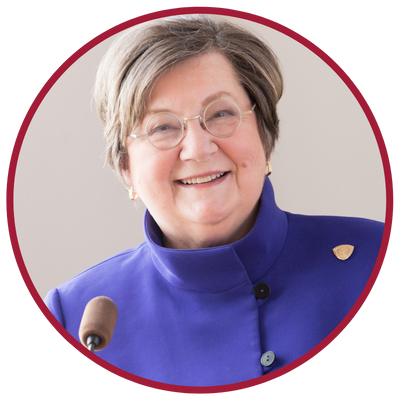Alliance Discussion with Dr. Pamela Davis: Vital Roles of the Community in Research and Advocacy

Recently, I had the wonderful opportunity to speak with this year’s recipient of the Herbert Pardes Family Award for National Leadership in Advocacy for Research, Pamela B. Davis, MD, PhD. Dr. Davis was joined by colleague Heidi Gullett, MD, MPH, during a Research!America alliance discussion. From their offices at Case Western Reserve University, Drs. Davis and Gullet discussed the power of patient advocacy and how engaging communities in the research process is linked to tackling health disparities. Here is a sample:
Dr. Davis on the power of community engagement:
“I worked on cystic fibrosis (CF), which is a genetic disease described in 1938 and when it was first described, the patients all died in infancy. By the mid-1950s, these children were collected into centers [and] doctors got familiar with it … but they also understood that there was an enormous amount that they still needed to know, and they engaged the families in education about the disease. These families got together and established the Cystic Fibrosis Foundation, which not only raised money to support research, but strongly advocated for support at NIH and in the federal government. [U.S. CF patients] are now up to a median survival age of 50 years and I believe we are looking at an opportunity to make the life expectancy of the CF patient approach that of a non-CF individual … but this is all possible because the patients and their families were engaged.”
Dr. Davis on disparities in healthcare:
“There has been no challenge that has more into sharper focus the health disparities in the United States than the COVID-19 pandemic. So, why should there be such health disparities? There are myriad reasons but here are a few of the important ones: patients from Black and Hispanic minority communities are more likely to live in crowded conditions … they are more likely to hold public facing jobs. Patients from Black and Hispanic backgrounds are more likely to have a predisposing co-morbid condition. They have less access to health care and preventative care. I would also say that some of these discrepancies exist because we have not been assiduous in enrolling Black patients in clinical trials, especially for major diseases. In cancer, for example, it’s been difficult to enroll enough Black patients in clinical trials and more recently, with the onset of personalized medicine, there are too few Black patients for whom the cancer genomes are calculated.”
Dr. Gullett on what is driving health inequity:
“[We] looked at redlining maps, which are maps of banking practices from the 1930s…this happened in more than 230 cities across the country. The bottom line is health disparities [and inequities] … is reflective of the redlining map in our community. So, we know that there are racial inequities based on the kind of opportunity people have had over years, that’s economically grounded, but now related to things like access to healthy food, places to exercise, and things like that.”
Dr. Davis on research advocacy in the community:
“I think that in some ways research advocacy can immunize against falsehoods and rumors. Communicating with the community allows researchers to design relevant studies. Two-way communication is very important. You need to take the pulse of the community and understand how they are thinking and what their concerns are. Listening is just as important as talking in the advocacy realm. A knowledgeable community is going to understand research better and have an ear for the truth. It’s not a permanent inoculation—communication has to be kept up.”
Dr. Gullett on solutions to health inequity:
“We’re engaging with community members as part of the research team … so we can tackle wicked problems like poverty and racism that are leading to health inequities and unjust conditions … [It is] so important that we work together at the speed of trust. You heard Dr. Davis talk about how important these pieces are and that it takes time; these relationships are long-term, predicated on mutual respect and trust that’s earned over a long period of time.”




